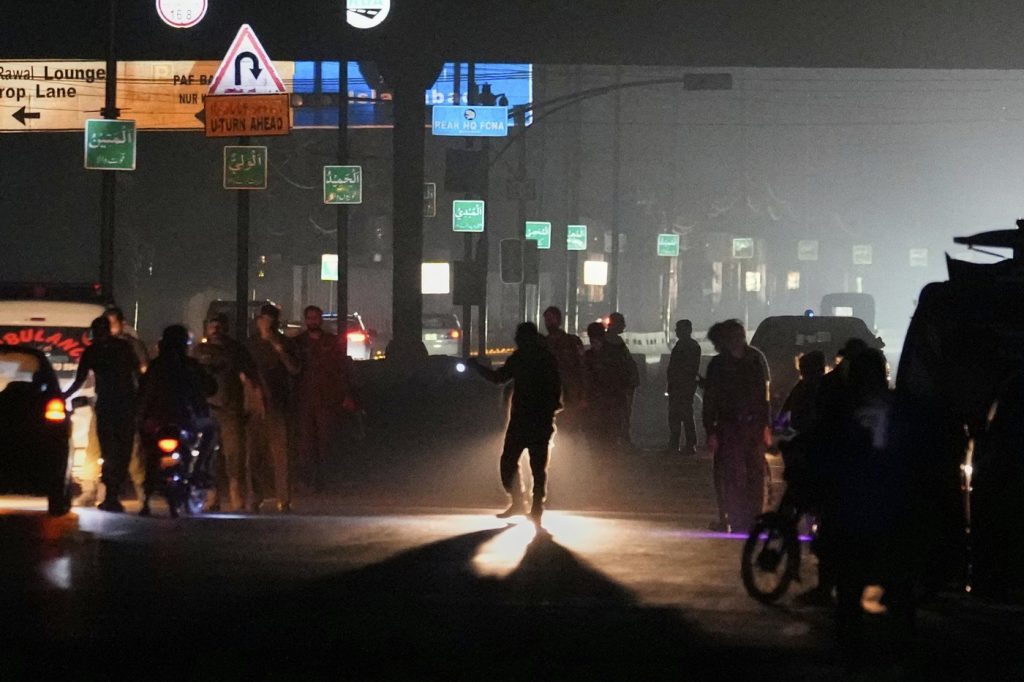India and Pakistan have both expressed a willingness to de-escalate hostilities, contingent on reciprocal actions from the other side, following missile exchanges that signify the most severe escalation in their ongoing conflict. The tensions were sparked by a gun massacre last month that India attributes to Pakistan.
On Saturday, Pakistan's Foreign Minister, Ishaq Dar, indicated that de-escalation could be considered if India refrains from further attacks. However, he also cautioned that any additional Indian strikes would prompt a response from Pakistan. In comments made to Geo News, Dar stated, "We responded because our patience had reached its limit. If they stop here, we will also consider stopping."
In New Delhi, Indian Wing Commander Vyomika Singh affirmed India's commitment to "non-escalation, provided the Pakistan side reciprocates." She raised concerns about Pakistani ground forces moving towards forward areas, noting it reflected offensive intent and potential for further escalation. The situation prompted the United States and other nations to call for de-escalation, with U.S. Secretary of State Marco Rubio engaging both Indian officials and Pakistani Army Chief Asim Munir.
Meanwhile, Indian Prime Minister Narendra Modi convened a meeting with senior security officials at his residence, discussing strategies in light of the rising tensions. This meeting included Defense Minister Rajnath Singh and the heads of the Army, Navy, and Air Force. China, a significant ally of Pakistan, voiced deep concern over the escalating situation and offered to assist in finding a peaceful resolution.
In the wake of military confrontations, India announced the shutdown of additional airports in northern and western regions, suspending operations at 32 airports until May 15. This decision affected areas including Punjab, Jammu and Kashmir, and Gujarat, which border Pakistan. In Srinagar, activity has slowed following multiple explosions, with heavy military presence and checkpoints established around the image of an Indian air force station.
Reports from Pakistan indicate at least 11 fatalities and 56 injuries resulting from artillery exchanges near the Line of Control in Kashmir. Mazhar Saeed, the information minister for Pakistan-administered Kashmir, accused Indian troops of intentionally targeting civilians, claiming that heavy artillery fire destroyed around 200 homes overnight.
Additionally, Pakistan's Prime Minister Shehbaz Sharif claimed that the nation had launched a retaliatory strike against India in response to perceived aggression. He asserted that Pakistan had shown "extreme restraint" and that any response was justified given Indian missile strikes on civilian areas. Pakistan has also stated that defensive measures are being taken as a precautionary response to India’s actions.
The Indian military countered by asserting that they targeted Pakistani military installations in retaliation for missile attacks on Indian air bases in Punjab. The situation intensified as India's Border Security Force reported unprovoked firing from across the border, claiming to have destroyed a "terror launch pad" in Pakistan’s Sialkot district.
Compounding the tensions, India’s Border Security Force informed of cross-border firing incidents, while the Indian military stated it had thwarted attempts by Pakistani armed drones to enter Indian airspace. A red alert was declared in several cities, urging residents to avoid potential attacks.
The conflict has further attracted international attention, with both the U.S. and Turkey reaching out to discuss possible resolutions. U.S. Secretary of State Marco Rubio has urged both countries to de-escalate tensions, while the situation remains fluid. No independent validation of casualties or attacks has been feasible due to the ongoing conflict and communication barriers.
As incidents continue to unfold, including Pakistan’s claims of targeting India's S-400 defense system, the international community awaits any potential diplomatic breakthroughs that might alleviate the immediate crisis. Both nations remain on high alert, with military readiness at the forefront of their responses to ongoing provocations.











